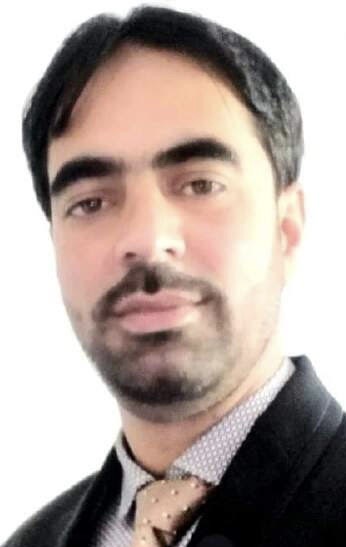by Mudasir Mushtaq Khan
Let us pledge to adopt a unified approach that prioritises our youth’s health, well-being, and prospects.

Fostering an environment in which children feel secure in articulating their apprehensions, anxieties, and curiosities regarding drugs is crucial. The escalating phenomenon of drug abuse among young people presents a disturbing and expanding challenge, not only imperilling the individuals directly affected but also threatening the very fabric of our society.
Data from the Ministry of Social Justice and Empowerment reveals that in 2022, a staggering 108,000 men and 36,000 women in Jammu and Kashmir were found to be using cannabis; meanwhile, 534,000 men and 8,000 women consumed opioids, 160,000 men and 8,000 women abused sedatives, and 127,000 men and 7,000 women were struggling with inhalant addiction.
The sheer scale of this crisis demands a coordinated and community-driven response. De-addiction initiatives must be decentralised and brought closer to the heart of the community. In a groundbreaking move, mosques are emerging as a vital hub for this endeavour. The opportunity for counsellors to share the pulpit with religious scholars presents a unique chance to address the escalating issue of substance abuse.
As the world marked the International Day Against Drug Abuse and Illicit Trafficking on June 26, 2024, it is imperative to confront the complex causes of drug abuse among young people and within educational institutions and to devise a comprehensive strategy to prevent such harmful behaviours. The genesis of drug abuse in youth often lies in a multitude of social, psychological, and environmental factors. A significant trigger is the stress stemming from academic and social pressures, which, when combined with the experimental and impulsive nature of adolescence, renders educational institutions a fertile ground for potential substance abuse issues.

Preventing drug abuse necessitates a proactive and multifaceted approach, with education playing a vital role. Schools and colleges must incorporate comprehensive drug awareness programmes into their curricula, programmes that not only enlighten students about the dangers of drug use but also empower them with the skills to refuse drugs. Such programmes must be tailored to specific age groups, culturally sensitive, and inclusive, addressing scenarios that could arise in real life.
Parents and teachers are on the frontline of this battle against drugs, and they must remain vigilant and responsive to the emotional and behavioural changes in young people.
Creating a secure environment where children feel empowered to discuss their fears, anxieties, and curiosities about drugs is vital. Parents must establish open channels of communication and cultivate a nurturing home environment, fostering trust and understanding. Teachers, meanwhile, should receive training to identify signs of drug use and mental distress among students, enabling early intervention. The broader community also has a pivotal role to play. Community leaders and stakeholders must collaborate to create safe, engaging, and healthy alternatives for young people to spend their leisure time, such as sports, arts, and volunteer work, which can serve as excellent outlets for stress and play a critical role in keeping youth engaged in positive activities.
Addressing the mental health of young people is crucial in preventing drug abuse. Schools and communities must have accessible mental health resources and counselling services, providing a safety net for vulnerable individuals. Regular workshops and seminars focused on developing coping mechanisms, resilience, and emotional intelligence can equip youth with the necessary tools to navigate life’s challenges without resorting to substance abuse.

The battle against drug abuse among young people is a collective responsibility that rests on the shoulders of us all – parents, teachers, policymakers, and community leaders. On this International Day Against Drug Abuse and Illicit Trafficking, let us pledge to adopt a unified approach that prioritises the health, well-being, and prospects of our youth. Through education, awareness, and proactive prevention, we can cultivate a generation that is resilient in the face of the drug scourge and poised for success.
Let us stand together to safeguard our most precious asset – our young people – from succumbing to the ravages of drug abuse. By doing so, we are not only saving individual lives but also preserving the health and security of our communities for generations yet to come.
(The author is a former Attorney at Law in the Jammu and Kashmir High Court and currently serves as a Government Law Officer. He is also pursuing a Master’s degree in Political Science from Indira Gandhi National Open University. Ideas are personal.)


